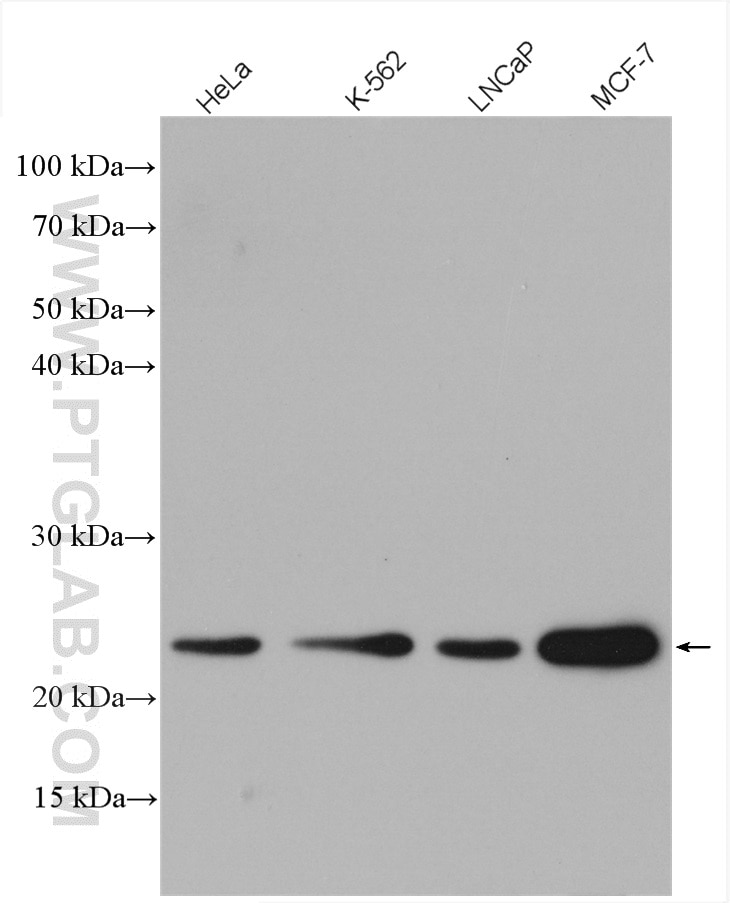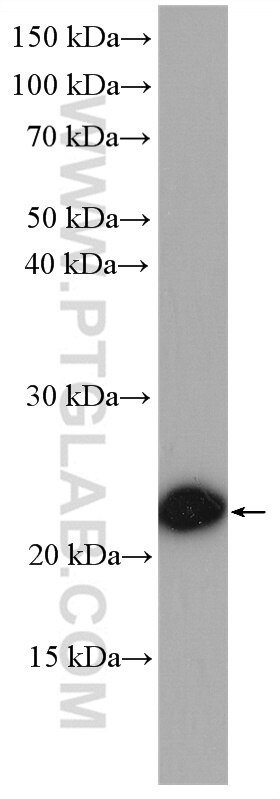Anticorps Polyclonal de lapin anti-UQCC
UQCC Polyclonal Antibody for WB, ELISA
Hôte / Isotype
Lapin / IgG
Réactivité testée
Humain
Applications
WB, ELISA
Conjugaison
Non conjugué
N° de cat : 28114-1-AP
Synonymes
Galerie de données de validation
Applications testées
| Résultats positifs en WB | cellules HeLa, cellules HepG2, cellules K-562, cellules LNCaP, cellules MCF-7 |
Dilution recommandée
| Application | Dilution |
|---|---|
| Western Blot (WB) | WB : 1:1000-1:6000 |
| It is recommended that this reagent should be titrated in each testing system to obtain optimal results. | |
| Sample-dependent, check data in validation data gallery | |
Informations sur le produit
28114-1-AP cible UQCC dans les applications de WB, ELISA et montre une réactivité avec des échantillons Humain
| Réactivité | Humain |
| Hôte / Isotype | Lapin / IgG |
| Clonalité | Polyclonal |
| Type | Anticorps |
| Immunogène | UQCC Protéine recombinante Ag27123 |
| Nom complet | ubiquinol-cytochrome c reductase complex chaperone |
| Masse moléculaire calculée | 299 aa, 35 kDa |
| Poids moléculaire observé | 21-27 kDa |
| Numéro d’acquisition GenBank | BC105791 |
| Symbole du gène | UQCC |
| Identification du gène (NCBI) | 55245 |
| Conjugaison | Non conjugué |
| Forme | Liquide |
| Méthode de purification | Purification par affinité contre l'antigène |
| Tampon de stockage | PBS avec azoture de sodium à 0,02 % et glycérol à 50 % pH 7,3 |
| Conditions de stockage | Stocker à -20°C. Stable pendant un an après l'expédition. L'aliquotage n'est pas nécessaire pour le stockage à -20oC Les 20ul contiennent 0,1% de BSA. |
Informations générales
UQCC is a transmembrane protein that is structurally similar to the mouse basic fibroblast growth factor repressed ZIC-binding protein. In mouse this protein may be involved in fibroblast growth factor regulated growth control. In humans, polymorphisms in this gene are associated with variation in human height and osteoarthritis. Alternate splicing results in multiple transcript variant.
Protocole
| Product Specific Protocols | |
|---|---|
| WB protocol for UQCC antibody 28114-1-AP | Download protocol |
| Standard Protocols | |
|---|---|
| Click here to view our Standard Protocols |



